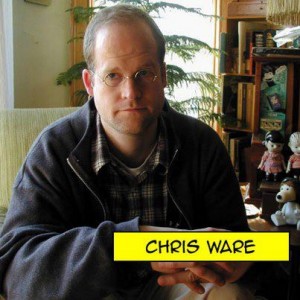The Rocky Mountain Conference on Comics and Graphic Novels, sponsored by Comic Book Classroom, the same organization that supports the Denver Comic Con, celebrates its first anniversary this year from May 28th-30th and takes on a subject close to the heart of the Denver community, the role and place of violence in comics. The Aurora shootings at a screening of The Dark Knight Rises took place less than a year ago, with details still emerging as news items, but the conference has seized the opportunity to gather comics scholars together to consider the social impact of violence, trauma, and healing in comics at a time when the conversation is so painfully relevant. Studying comics in academia is not a new thing, though it is a growing trend of impressive proportions, and if anyone wonders how the academic sphere can be relevant to daily life, this is certainly one of those instances. Reflecting on the cultural products we create and considering what they say our obsessions, concerns, and preoccupations can pave the way for preventing tragedies like Aurora, and also positively influence the healing process not only in Denver, but throughout the pop culture community.

“Recent tragedies, including the Aurora shooting that struck close to the heart of the ROMOCOCO and Denver Comic Con family, have turned the national conversation towards the roots and consequences of violence. Though there are many sociological and psychological areas of study that theorize about the relationship between violence in the media and “real world” violence, it is also important to examine this pervasive topic through literary analysis”.
True to its theme, the two-day conference that leads up to the Denver Comic Con will present a wide array of panels addressing violence, trauma, and healing, ranging from “Causes and Consequences of Violence in Graphic Novel and Memoir”, to “Visual Violence”, “Memories of Trauma in Graphic Memoir”, and “Representing Historical Violence: Race and War”. The conference will also feature a “super-panel” on violence in comics.
The conference will continue the mission supported by Comic Book Classroom, a nonprofit organization that has grown to impressive dimensions and enabled the creation of the Denver Comic Con, to address introducing young readers to comics for educational purposes as well as providing free comics and curriculum to teachers, and several panels at the conference will engage with pedagogy for comics in the classroom. Last year’s keynote speaker Scott McCloud will be followed this year by the estimable Chris Ware.

Hannah Means-Shannon writes and blogs about comics for TRIP CITY and Sequart.org and is currently working on books about Neil Gaiman and Alan Moore for Sequart. She is @hannahmenzies on Twitter and hannahmenziesblog on WordPress. Find her bio here.








I hope someone reports on it or records it, I’d like to hear what they come up with.
Take guns out of comics!
I would be interested in hearing the reporting on this as well. While I’m not against violence in comics entirely, I am when it goes beyond what is necessary to drive the point home and migrates into gratuity.
Not that I would ever advocate censorship, but it’s definitely something for artists and writers to think about when they’re laying ink on paper.
Comments are closed.